- Home
- Fay Weldon
Wicked Women Page 5
Wicked Women Read online
Page 5
“Where are you?” asked Defoe.
“At my friend Hattie’s,” said Weena. “Shall I go to work? Tell me what to do.”
“Stay where you are, sweet as you are, and talk to me,” said Defoe. “Forget the New Age Times.”
“But if I lose my job?”
“I’ll look after you,” said Defoe.
“I’ve always wanted to do a biography,” said Weena. “I have such an inquisitive nature, I think I could really make it work. I suppose I could always do one of you. I feel I know you so well yet there’s so much more to know. You’re so deep.”
“Who would want it?” asked Defoe. “An old has-been like me!”
“All kinds of people,” she said. “I’d have to come down and stay, wouldn’t I, if I was working on your biography? I’d have to know everything, go through old photographs—”
“You would,” he said, his voice lightening.
“Indeed you would. We’ll talk about it on Monday.”
“If you like,” said Weena. “But I wasn’t thinking of doing much talking. Well, only over lunch, when your wife’s there. Before pottery.”
Defoe came downstairs to find Elaine brushing out the ashes in the grate.
“Cinderella!” he said.
“Daphne’s coming down by train for the weekend,” said Elaine, “without Alison or the dog. She’ll be leaving Monday on the 5:15.”
“I thought she was coming down on Tuesday,” said Defoe. “She can’t be here on Monday.”
“Why not?” asked Elaine. Her face was smudged with soot.
“I have an interview,” said Defoe. “The journalist’s staying to lunch, you’re going off to pottery. Call Daphne now and rearrange it.”
“No,” said Elaine. “You do it.”
“I don’t like having my time taken for granted,” said Defoe.
“Daphne doesn’t need entertaining,” said Elaine. “She’s family.”
“I suppose she is,” said Defoe. “Perhaps she’s Saunders’ child.”
“I beg your pardon?”
“Saunders had a queer brother. I always thought he was a bit of a poofter himself. Saunders, your Australian lover?”
“He was not my lover, Defoe.”
“Then I don’t know where Daphne gets it from. I certainly don’t want Daphne round the same luncheon table as a journalist. HAS-BEEN CELEB’S OLD AGE SHAME CRAWLS OUT OF CLOSET.”
“I’ll call Weena Dodds and put her off, shall I?”
“I don’t have her number.”
“I do,” said Elaine.
“Then please don’t use it. Weena Dodds is thinking of writing my biography.”
“Your biography!” exclaimed Elaine.
“Why not?” asked Defoe. “Do you think no one’s interested?”
“But all you’ve done is interview people,” protested Elaine.
“You want to pull me down,” said Defoe. “You think finally you’ve got me to yourself and defeated me and I can’t get away. Well, you’re wrong.”
“Defoe, I think nothing of the kind.” Elaine stood up to face him.
She struck the ash-filled dustpan against the fire irons, by mistake, and fine pale grey powder swirled up and around her in a mist before settling on hair, face, limbs, dress. It was wood ash, almost white. “I have waited many years for us to be together, that’s true enough. What is the matter with you?”
“You are the matter with me,” said Defoe. “You make me doubt myself. You always have. You stand there like a ghost. You are my old age. You make me decrepit before my time. You drew me away from the power source of the universe: you doomed me to mediocrity. You are right, all I ever did was interview people. Oh, you have a low opinion of me!”
“The power source of the universe! When I met you, you were developing nuclear weapons,” stated Elaine. “Your ambition was to destroy the universe, so far as I could see.”
She shook her dress. Wood ash puffed around. He stood further away from her so as not to be infected.
“At least on TV,” she said, “you have done no harm, though I can’t see you have done much good.”
“You are polluting me!” he cried. “I don’t want to be a ghost.”
“Though it’s rare for one person on their own to do much good, so don’t reproach yourself,” she said, ignoring what she clearly saw as his childishness.
“Did you say Weena Dodds of all people wanted to write your biography?” she asked. “And you’re encouraging her in this madness?”
“Yes,” he said.
“Isn’t she rather young?”
“The nation is full of young people,” he said.
“But not young ones who read biographies,” said Elaine, “or can afford to. I think we’re quite safe. I don’t think any publisher will see their way to doing it.”
“Safe! I want it done. My life needs to be written. Those people, those experts, whom I merely interviewed, hold all existence in their hands. The human race is at the end of the line, the doomsday clock ticks on. It’s stopped for a decade at four minutes to midnight, but there the hands still stand. Any minute now they’ll begin to move again. Red Mercury gave the clock a nasty judder, quite ajar: perhaps all that was needed!”
“My dear,” said Elaine, “I am not a camera, and not a sound boom. Pray do not address me as if I were a TV audience.”
“Bitch!” he cried. “Bitch! You’re so circumscribed here in your life, in your rightful place. So serene in your self-righteousness. So unemotional, so reserved, so without self-doubt. We hear a quaint tale or so about your mother the aristo alley cat, the gambler, the child-deserter. But they’re stories told to make people laugh, not cry. To keep the yobbos out, not let them in. Here we are, so quaintly eccentric. Why, even our children are gay! Have I ever made you cry? Never!”
“You’re my husband,” she said. “Why should you want to make me cry?”
If he put his foot forward and stamped, just a little, the floorboards carried the movement through. He tried it again. Yes, when the floorboards vibrated, yet more ash puffed out of his wife. For some reason this phenomenon reminded him of Hiroshima. You never get rid of radioactive elements. Never. Plant a dahlia in Hiroshima, even today, turn over the earth, apply a geiger counter and hear its ruthless rise. You could vacuum Elaine’s dress one day and still next day the stuff would ooze out. He longed for Weena, who at least had spent fewer years in the world than anyone else around. So little strontium in her bones!
“Well,” said Elaine, “I do what I can for you. I am selling this house so you don’t have to live here. I won’t go to pottery on Monday, if you prefer.”
“But I do want to live here,” he said. “I just don’t want to live here with you.”
He awed himself with his capacity to say it. It came out as a howl. He’d been reared in the back streets of Deptford. The howl contained the notion of estuary flooding the mouth of the Thames, and the snarling and yapping of dogs at swirling and unusual water. In extremis his origins showed. So did Elaine’s. “I’m such a mess,” she said vaguely. “All over ash! I think I’ll take a bath.”
“And if you don’t go to pottery,” he said after her, “I’ll kill you.”
“In that case I’ll go,” she said, startled. “But why?”
“You have to keep your own life going,” he said. “You don’t want yours to get swallowed up in mine. We agreed.”
“Did we? I expect you’re right. Anyway, I like it. I’ll try to go.”
As she went she pressed her lips lightly on his cheek, leaving a lurid cupid’s bow of powdery ash upon it.
“Poor old darling,” she said. “It’s no fun growing old.”
He went upstairs and did press-ups, and felt the sofa cushions to see if they were soft. They were.
“Justice, constancy, endurance, honesty,” said Elaine to her daughter Daphne, as she put salad from the garden on to the table, “those are the virtues. Those and a few others, abstract terms of a kind unknown to cont
emporary youth, but which those of us who learned the classics threw around with ease, are what we are on earth to pursue. They now cluster, undetected, only vaguely understood, under the heading ‘good.’ Just as under the heading ‘bad’ come minor vices such as procrastination, dishonesty, capriciousness, falsity—as in ‘we must teach our children the difference between good and bad. Thus we will put an end to all juvenile crime.’ But without the ability, the inclination, or indeed the intellectual wherewithal to break down good or bad into their component parts. The language of distinction ceases to be available; is no longer available. We must search CD Rom for meanings which once were clear, but now are obscure. The words are too big for the narrow column of the contemporary newspaper. We are all one-syllable people now, two at most. So we mumble and stumble into our futures. But it is still our task and our reward to scavenge through the universe, picking up the detritus of lost concepts, dusting them down, making them shine. Latin was the best polishing cloth of all, but we threw it away.”
“Shouldn’t Dad be back by now?” asked Daphne, who had learnt to ignore a speech perfected when Daphne refused to learn Latin and Elaine thought she should. “Perhaps the train was late?”
“Perhaps,” said Elaine. The vinaigrette was made: the egg mayonnaise prepared. Dishes were displayed, rather bleakly, on the round, polished mahogany table.
“It doesn’t look very lavish,” said Daphne. “But then it never did.”
“I have the habit of my class and generation,” said Elaine. “We were never a particularly sensuous lot. So your father complains.”
“It’s been a really sticky weekend,” complained Daphne. “I haven’t enjoyed it much.”
“You only have to stick it out till the 5:15 train,” said Elaine. “It was your idea to come here, to hide out from the fleas. Don’t complain. Your father and I bicker. It isn’t serious.”
“I made up the fleas,” said Daphne. “Actually I came for a little breathing space. Alison’s putting pressure on me. She thinks I ought to turn into a man. I need to be sure. Though my operation would be reversible, just about, as it isn’t for Alison.”
“But you wouldn’t be a fertile man?”
“No. Of course not. I am fertile now. That’s one of my main problems. As it is, I could have a hysterectomy, but I’d still be just a woman, only without even a womb. I’d rather have a bit put on to balance it all up. And then we could adopt. If Alison has legal female status, I can argue that I want male status.”
“I can go so far in understanding,” said Elaine, “no further. Frankly, I don’t want to. Work it out yourself. Which bit of you and Alison go into one another is neither here nor there, but then I am not an interested party.”
“I knew I shouldn’t have brought the subject up,” said Daphne. “I might have known you wouldn’t be interested.”
Elaine groaned. “Are you like this at your meetings?” she asked.
“Of course not,” said Daphne.
Defoe and Weena came in. Both were flushed. Defoe’s longer piece of hair fell not across his scalp but down behind his ear. He did not care. Weena put her hand on Elaine’s arm. She wore a black T-shirt and no bra beneath it, and a pair of skimpy blue faded denim shorts with frayed hems around the thighs. A big green leather bag was slung over her shoulder. Her hair had been shaved well back from her brow.
“Behold your husband’s biographer,” said Weena to Elaine.
“How nice,” said Elaine, removing Weena’s hand. “I must go and drain the potatoes. But do meet my daughter Daphne.” Daphne regarded Weena with more interest than Weena regarded Daphne. Elaine went through to the kitchen.
“Not only is Weena to do my biography,” said Defoe, following her to the door, “but a Sunday newspaper is to buy it in instalments, for a sum well into five figures, which Weena and I will share, fifty-fifty. So your doubts were unfounded, Elaine. I am not a nobody; I am still a somebody.”
“I’m so glad,” said Elaine, bringing in the boiled potatoes. “And the train was late, I take it?”
“Very late,” said Defoe, sitting at the head of the table, in a high-back upholstered chair which had been given to Elaine’s great-grandfather by a nephew of the King of Denmark.
“Actually,” said Weena, “it was on time. Defoe and I had a celebratory fuck on the way to the house, down in the reeds by the river. Why hide it, Defoe? What’s to be ashamed of? I hate lies.”
“Don’t make jokes like that, Weena,” said Defoe. “Don’t try and shock people.”
“There’s only one shocking thing round here, Def,” said Weena, sitting down at the table on a chair bought by Elaine quite recently, at an auction. Very few things in the house actually matched any more, but had been chosen with care and sensitivity to fit in. “And that’s your hypocrisy. Well, people are easily cured of that. Just don’t tell me what to do: and don’t patronise me. Can I dig in? Sex always gives me an appetite. Def says I can stay here, Mrs. Desmond, while we work on the book. I hope that’s hunky-dory with you.”
Defoe went upstairs to fetch his glasses. Elaine looked at Daphne for support and advice. These two women were still on their feet. Daphne seemed flummoxed, but presently said to Weena, who had helped herself to egg mayonnaise, potatoes and salad, and was now eating well—“I think you should withdraw your remark about fucking down in the reeds by the river. I think it was the Great God Pan did that—‘What was he doing, the Great God Pan, down in the reeds by the river?’ The answer, to the horrid children, being obvious!”
“The way this whole family speaks alike!” said Weena. “It’s too much. I might make recordings. We might market the books of Def Desmond with tapes attached. He’s such a listening-to kind of person, isn’t he? Brilliant! It’s what first attracted me to him. And a good fuck, too, to coin a phrase, if a little slow at the beginning. But that might just be his age.”
“Withdraw the remark,” said Daphne.
“No,” said Weena. “It’s true. Def and I have been having an affair for almost a year now.”
“You’re lying,” said Elaine. “My husband wouldn’t do a thing like that.”
“Well, he would,” said Daphne.
“Not with someone like her,” said Elaine.
“He said yours and his sex life was over anyway,” said Weena to Elaine. “You don’t want to do it any more.”
“The liar!” cried Elaine, but Weena did not want to hear that.
“I suppose that’s natural as you get older,” said Weena, “though I don’t see it happening to me. It’s been hard on Def. So I don’t see I’m poaching on anyone’s territory: if anything, I’m a help. Don’t you put mint in your potatoes?”
“It’s vulgar,” said Elaine. “Too obvious.”
“Def says you never notice anything,” said Weena, “or you might have noticed he’s on the vulgar side himself, not to mention the obvious. You do to Def what my mother did to my dad: you shame him and expose him and laugh at his achievements. You suck his life out of him to keep yourself going.”
“You’ve got it wrong,” said Daphne. “It’s the other way round.”
“I’m the one who loves Def properly,” said Weena. “I’m the one who can make him happy.”
“I want you to leave my house,” said Elaine. “I want you to leave it now.” And she looked round desperately and automatically for help from Def, who wasn’t there.
“The thing is,” said Weena, “it isn’t your house, is it? It’s Def s. He told me so. So it’s not up to you whether I go or stay, it’s up to Def. And he needs me to stay because he won’t get his money otherwise, and the money is enough for him to pay off his debts and stay here in the house he loves. With me to love him and look after him.”
“She’s insane,” said Daphne, “or seriously disturbed. But ever so fanciable. Perhaps I should borrow your car, Mum, and drive her back to London for treatment.”
“No thanks,” said Weena. “Not if you’re as dykey as Def says. I’m not sitting in a car wit
h you!”
Defoe returned with his glasses.
“I want to make it clear,” he said, “that Weena was merely using a tactic common to biographers today. Her train was late—check with the station if you like—we came straight here. Our relationship is, of course, perfectly proper. The rest is shock tactics, designed to sweep away our conventional habits of restraint and repression when it comes to our own lives. After this, we will all be as frank and open as she requires.”
“And you’re old enough to be her father,” said Daphne.
“It’s the last station at the end of the line,” said Elaine. “It’s unmanned, as you well know. I couldn’t check if I wanted to. Either way, Daphne will drive me back to London now. I will stay with her and Alison.”
“Peter has a bigger apartment,” said Daphne. “Rick is smaller than Alison. There is no dog. You’ll be happier with Peter.”
“I will stay with one of my children,” amended Elaine, “until you’ve come to your senses, Defoe.”
“One dyke and one queer,” said Weena. “Even my mother didn’t do as badly as that!”
“Shut up, Weena,” Defoe had the grace to say, but Weena made a dive for his crotch and he giggled. “That is so profoundly politically incorrect. God, I love you!”
“What have you been taking, Dad?” demanded Daphne. “What has she been giving you? Shall we go upstairs, Mum, and put a few things in a suitcase?”
But Defoe was smiling too hard to hear. Elaine seemed to be in shock: ashen. Daphne helped her from the table. For the first time, Daphne envisaged her mother as old: and what was more, quite possibly old without a husband. Defoe would quickly find a woman to nurse him, even one of the likes of Weena. But who would Elaine have? Daphne? Peter? The needs of an older generation would not spark sympathy in Rick’s mind, let alone Alison’s. Jumper would not mind. Daphne must get home to nurture Alison. She had been away too long.
“No need to make such a scene, Elaine,” Defoe reproached his wife. “Weena’s just an Eloi. She’s easily upset. You’re turning this into a real embarrassment. It’s unforgivable.”

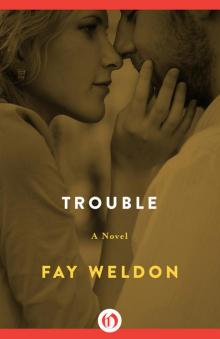 Trouble
Trouble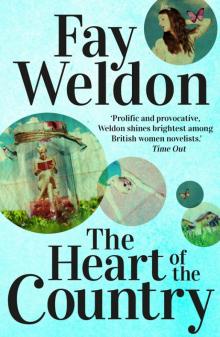 The Heart of the Country
The Heart of the Country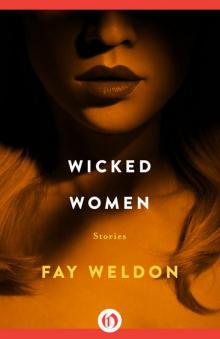 Wicked Women
Wicked Women Mischief
Mischief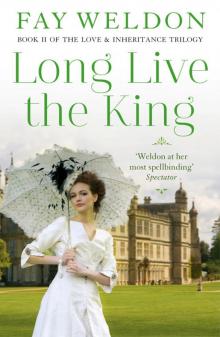 Long Live the King
Long Live the King Remember Me
Remember Me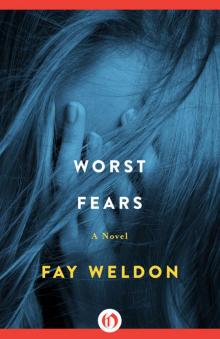 Worst Fears
Worst Fears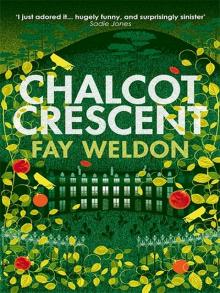 Chalcot Crescent
Chalcot Crescent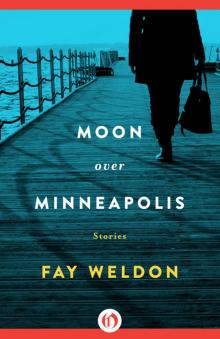 Moon Over Minneapolis
Moon Over Minneapolis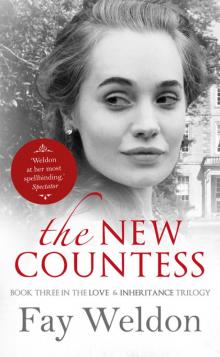 The New Countess
The New Countess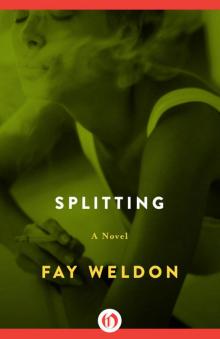 Splitting
Splitting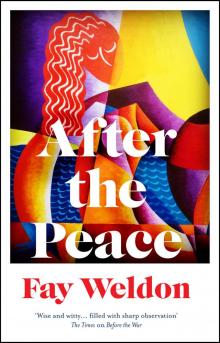 After the Peace
After the Peace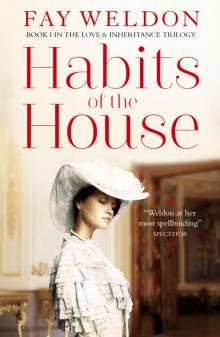 Habits of the House
Habits of the House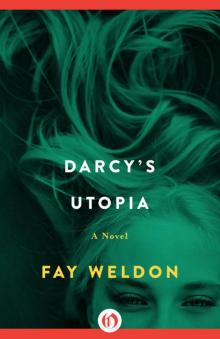 Darcy's Utopia
Darcy's Utopia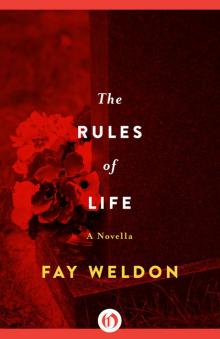 The Rules of Life
The Rules of Life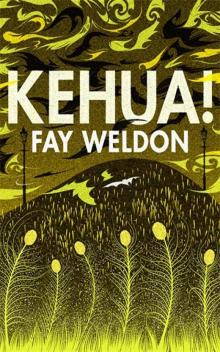 Kehua!
Kehua!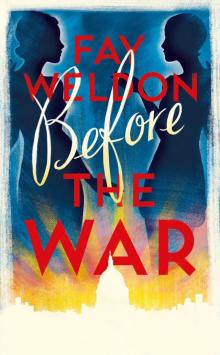 Before the War
Before the War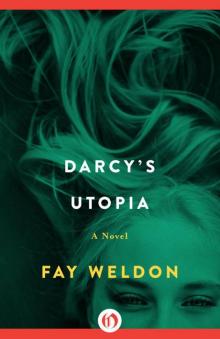 Darcy's Utopia: A Novel
Darcy's Utopia: A Novel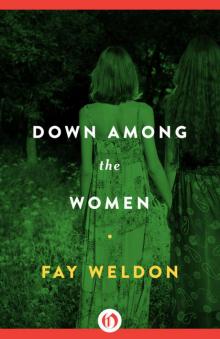 Down Among the Women
Down Among the Women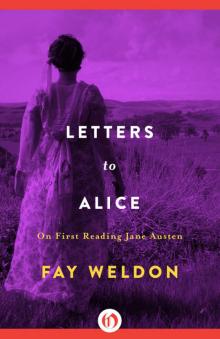 Letters to Alice
Letters to Alice 3 Great Historical Novels
3 Great Historical Novels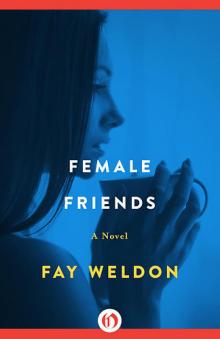 Female Friends
Female Friends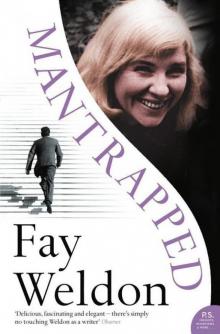 Mantrapped
Mantrapped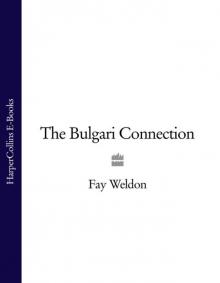 The Bulgari Connection
The Bulgari Connection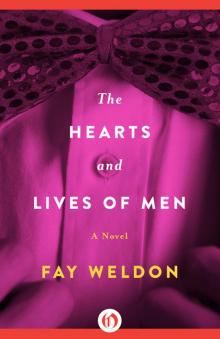 The Hearts and Lives of Men
The Hearts and Lives of Men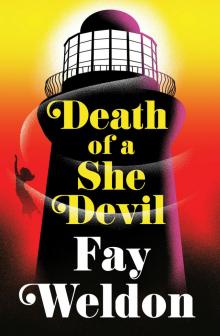 Death of a She Devil
Death of a She Devil